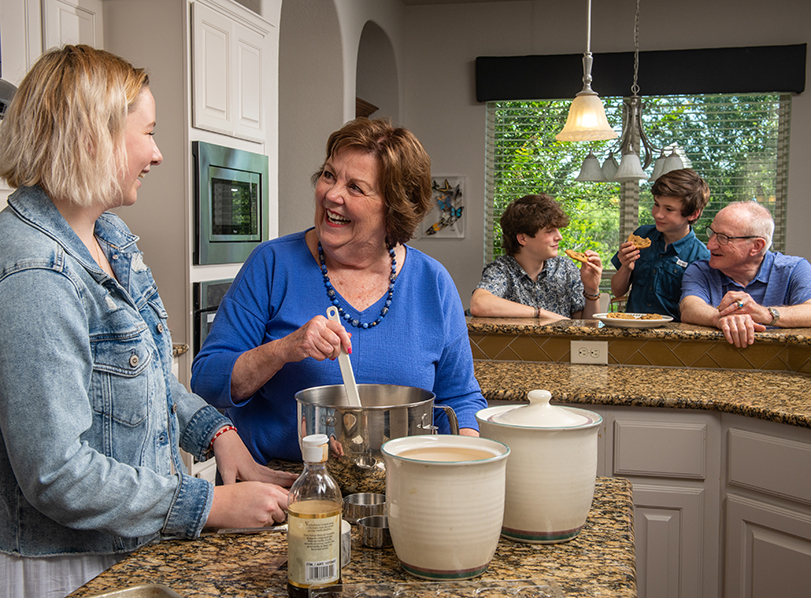Independent,
Maintenance-Free
Living
Retirement Living Geared To You
![]()
A Life Plan Community is also called a Continuing Care Retirement Community (CCRC). In essence, it’s a vibrant retirement community with options for future healthcare right on the same campus, if and when it is needed.
Independent, maintenance-free living is the hallmark of a Life Plan Community—with lots of social activities, shared hobbies, fitness programs, flexible dining options, and a host of amenities.
But the chief benefit is guaranteed and discounted access to a wide range of on-site health care services, including Assisted Living, Memory Care, Rehabilitation, and Skilled Nursing. You will have the peace of mind that you and your spouse will be taken care of through every phase of aging without having to move, surrounded by people you know and trust.

Why Choose a Life Plan Community?
![]()
- Guaranteed & discounted access to health care right on campus.
- An active, social environment where the choice is yours. Our active lifestyle affords you the luxury of fun and freedom. You can fill your calendar as much (or as little!) as you like, whether you join some of the 70+ clubs or travel the world.
- Maintenance-free living means no more yard work or home repairs! We take care of the little things and the big ones, too.
- Financial value: tax benefits, estate preservation, unwavering spending patterns (continuing to add to nest egg). Learn more about our financial value.
- People are living longer! Plan ahead and ensure that you can live your life the way you want to, not the way you have to.
- Peace of mind for you and your loved one, children, grandchildren.
Statistics
![]()
- Worldwide, 901 million people are over the age of 60 today. That number is projected to reach 1.4 billion by 2030 and nearly 2.1 billion by 2050.
- 70% of people over the age of 65 will need long-term health care.
- Although some variations in older people’s health are genetic, much is due to people’s physical and social environments – including their homes, neighborhoods, and activities.
- Studies have shown that improving quality of life and functional ability among older people must be geared toward helping them effectively manage chronic diseases and complex coexisting conditions.

Living at Blue Skies of Texas West for seven years has been a great experience.
The administration, the staff, and the residents create a dynamic atmosphere that
would be hard to beat. I call it ‘my little place just this side of Heaven!’
We moved in and it was like, ‘Whoa!
This is where we belong. Everything’s here.’
We moved here to find the best of both worlds! Moving here while
still able to live independently, we have taken the hard task of
providing future care decisions as we age, off our children’s plate.
Our first reaction was that this looked like home.

